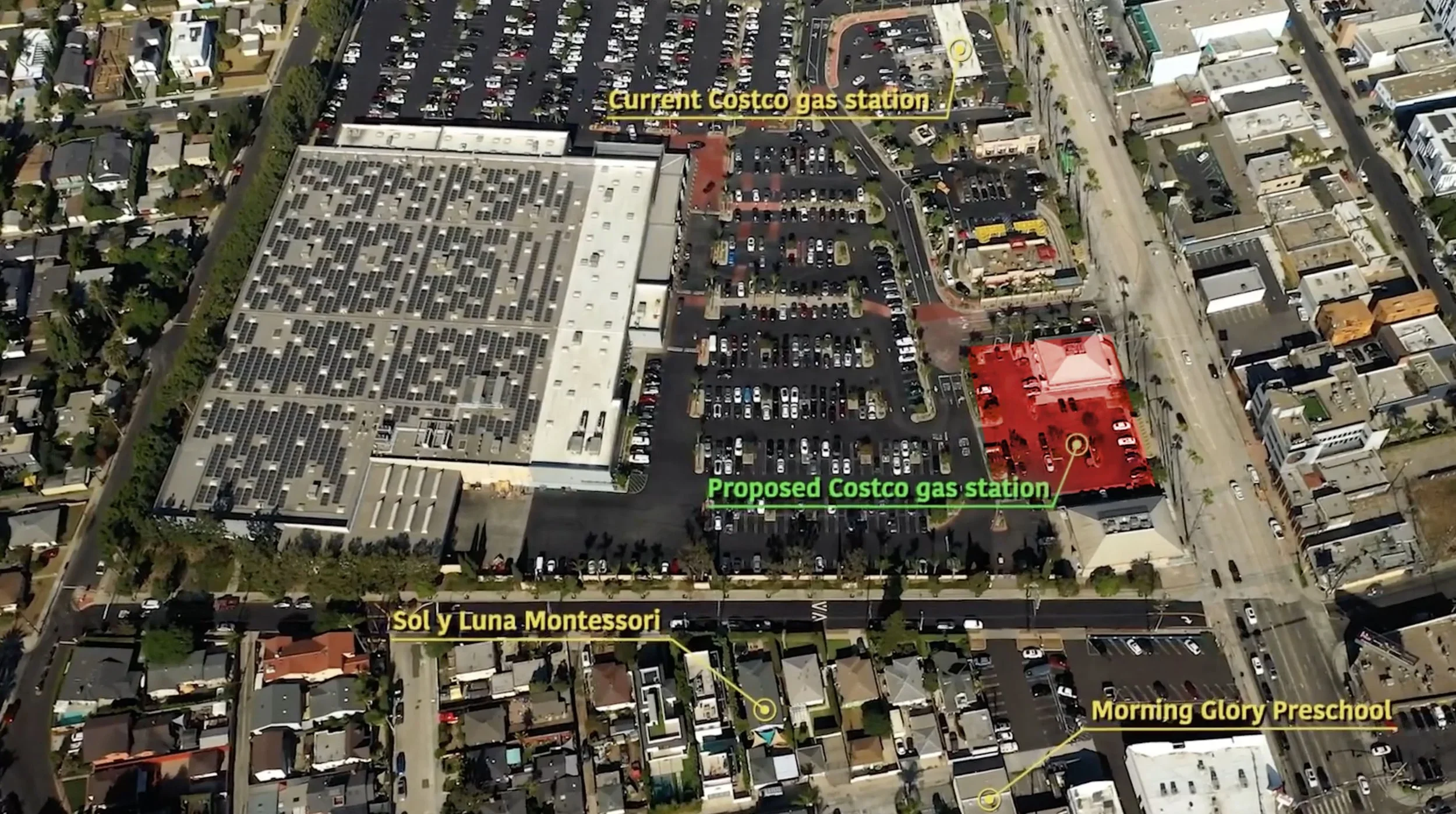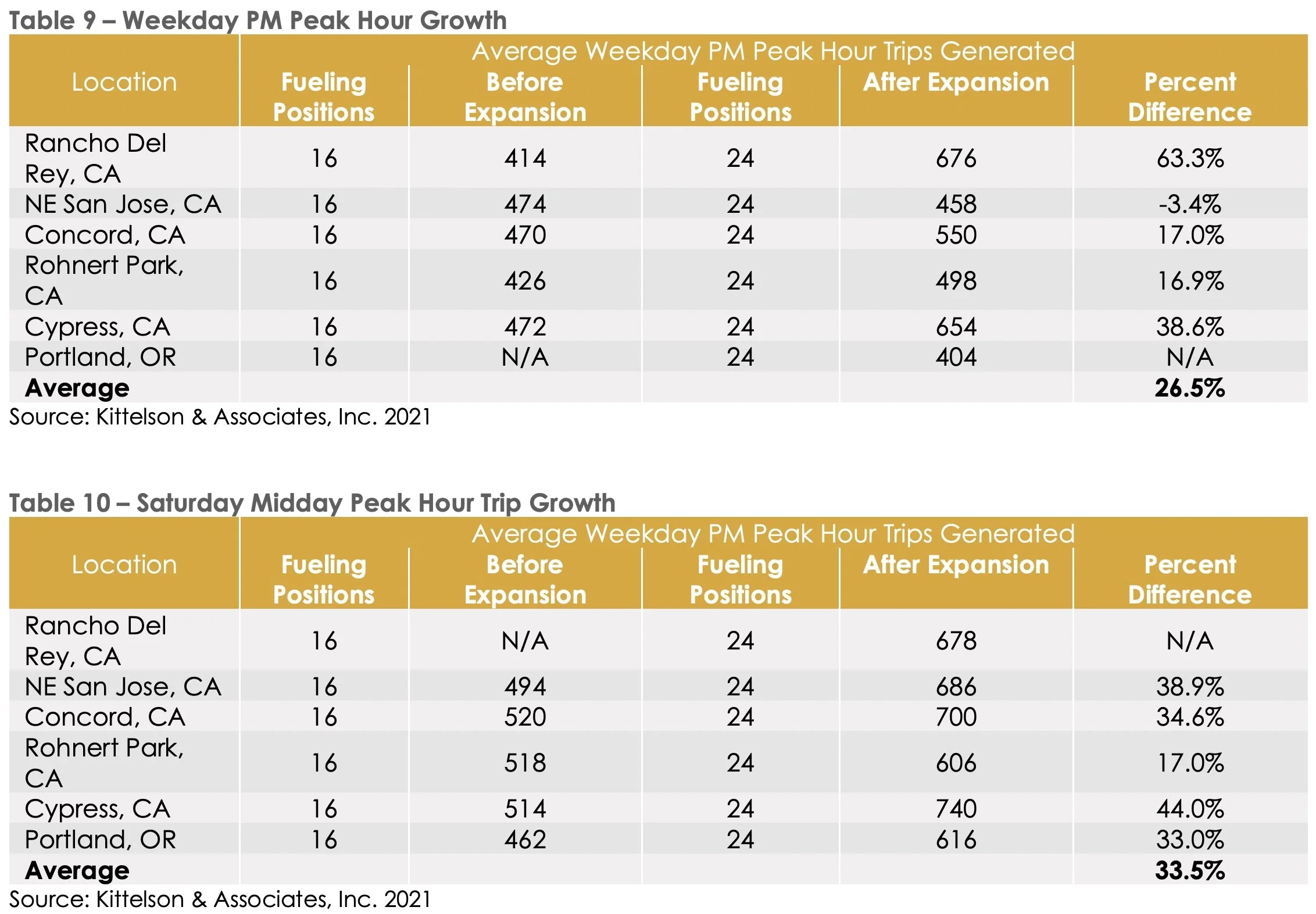Tell the Culver City Council that fossil fuels are not exempt from environmental review

Two local preschools are sounding the alarm as the Culver City Council considers whether relocating and nearly doubling the size of a gas station should be exempt from an environmental review process. The proposal would increase the number of gas pumps from 16 to 30 and move the gas station less than 200 feet from Morning Glory Preschool.
The California Air Resources Board, our state regulatory agency in charge of air quality, “recommends that local governments not approve new gas stations immediately adjacent to housing and other locations with sensitive receptors.” This is because gas stations pollute surrounding neighborhoods with cancer-causing chemicals like benzene. The link between cancer risk and gas stations is well-established in scientific literature (recent examples here, here, and here).
This neighborhood is already disproportionately impacted by pollution.

The increased pollution that would result is particularly notable given the location of the proposed site within the West Washington neighborhood. This neighborhood was highlighted by the California Department of Environmental Justice as an SB 1000 neighborhood, which means there is a high proportion of low-income households exposed to high pollution burdens that often result in compounding health risks. Increasing the number of cancer-causing pollutants in this neighborhood would only make the situation worse.
It would also be inconsistent with the Culver City General Plan policy CHEJ-2.6, which specifically seeks to minimize air pollutants in SB 1000 neighborhoods, and implementation item IA.CHEJ-12, which suggests that projects in SB 1000 Priority Neighborhoods should have additional air pollution mitigations.
How could a gas station possibly be exempt from environmental review?
In their proposal for the gas station expansion, Costco provides evidence that every gas station expansion they’ve completed results in significantly more gas pumped and significantly more net car trips generated. You’d think that would be enough to demonstrate that the expansion project should not be exempt from environmental review.

Note that these examples all expanded to only 24 fueling positions. The proposed expansion in Culver City would result in 30 fueling positions — an even more significant increase in polluting potential.
But Costco argues this one will be different. According to Costco, this expansion will reduce total car trips in the area because constructing the new gas station will require them to demolish existing shops that usually draw a lot of vehicle traffic: a Starbucks and a Verizon store.
The problem with this reasoning is that the Starbucks/Verizon building in question has been totally vacant since at least 2023 — no Starbucks, no Verizon, and not for some time. So demolishing that building won’t take any cars off the road.
According to the court case cited by Costco, the “normal rule” for this kind of analysis is to take the present conditions when the formal environmental review process starts, not the conditions from years before. Cities can deviate from the normal rule, but only for a good reason.
There's no good reason to deviate from that rule in this case, and in light of the potential harm from gas stations, there's very good reason to go through an environmental review.
Does the City Council have any choice in the matter? Yes!
This isn’t a case where the City’s hands are tied. Given the substantial evidence, the City has the discretion to use the “normal rule” for environmental analysis and deny the request for exemption from environmental review.
-
Every Costco gas station expansion has resulted in more car trips and more gas pumped. Why should this one be any different?
-
This neighborhood was singled out by the City for special concern when it comes to environmental justice issues. Does that commitment mean anything?
-
It’s so widely accepted that gas stations cause cancer that the California Air Resources Board recommends cities never approve gas stations near residences or other sensitive receptors (like preschools).
We’ll end with the words of the parents and caregivers in the affected neighborhood:
